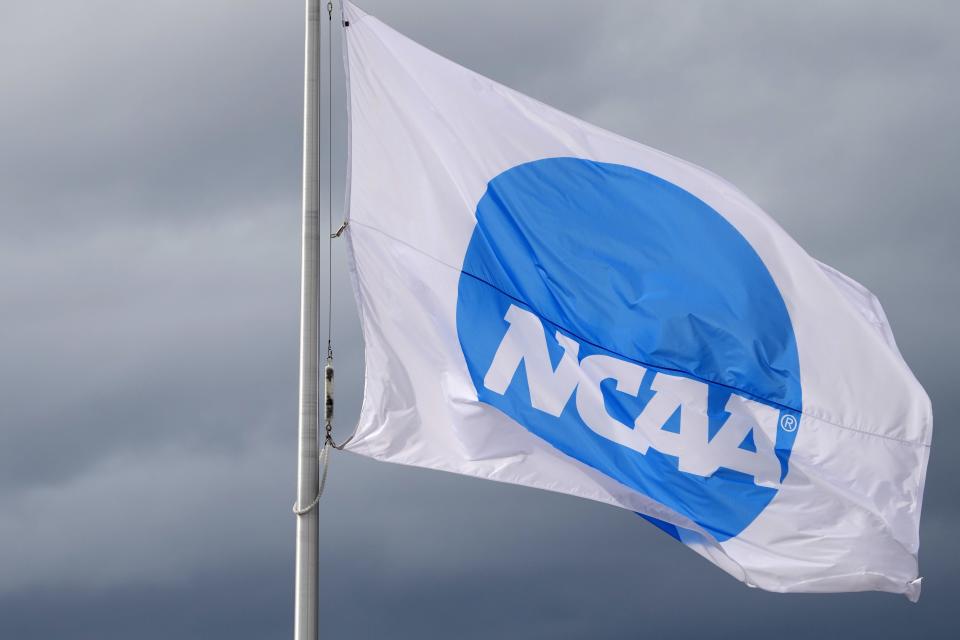NCAA to consider significant changes to infractions process Wednesday

The NCAA Division I Board of Directors is expected to adopt several significant modifications to the infractions process at a meeting Wednesday, with even more radical changes, like the elimination of postseason bans, being raised for wider consideration among NCAA leadership.
The possible changes are outlined in a document that has been circulated among Division I athletic departments in recent weeks and was obtained by USA TODAY Sports.
Many of the proposals originated from the Division I Transformation Committee, which is led by SEC commissioner Greg Sankey and Ohio University athletics director Julie Cromer. They mirror several recommendations endorsed in a signed document last October by 75 members of the LEAD1 association, which represents the 130 Division I athletics directors in the Football Bowl Subdivision, suggesting the changes have widespread support across the highest level of college sports.
The hope is that the bundle of changes will make the infractions process faster, reward schools who are aggressively cooperative in investigations and more carefully target penalties toward those who break rules rather than athletes who had nothing to do with the violations.
“Looking at the big picture, it was a chance — and this doesn’t happen often — where the will of the majority of the ADs and people who run the programs can actually be executed into policy,” said Tom McMillen, the president and CEO of LEAD1. “One of the frustrations in college sports is that doesn’t happen very often.”
Among the key proposals that the Board of Directors is expected to adopt:
The elimination of the Independent Accountability Resolution Process, better known as the IARP, which was formed to handle more complex infractions cases in the wake of the FBI investigation into college basketball corruption. The IARP has been heavily criticized within college sports for the glacial pace of its work.
Requiring boosters of a school to cooperate in investigations, while rewarding schools who assist in obtaining cooperation from third parties.
Adding incentives for schools to work with the enforcement staff on negotiated resolutions to violations while reserving the Committee on Infractions for “only the most significant behaviors.”
Legislative changes that give schools more credit for self-reporting violations, exemplary cooperation and “significant” self-imposed penalties.
Limiting the circumstances under which cases can be delayed and creating incentives for schools to push an accelerated timeline.
Limiting the grounds on which schools can appeal penalties from the broader abuse of discretion standard to the more narrow determination of whether the Committee on Infractions did not properly implement aggravating and mitigating factors in its decision.
Another set of even more aggressive concepts from the Transformation Committee are noted in the document as part of the “Phase II” discussion, meaning they need to be discussed in more detail before further action by the Division I Council and the Board of Directors. Those concepts include:
Alternative penalties to replace postseason bans.
Allowing schools more latitude to publicly comment on pending cases, which is currently prohibited in the infractions and enforcement process, while also allowing the NCAA to publicly comment when schools or individuals fail to cooperate.
Banning the use of disappearing messaging apps like Signal in recruiting communications.
Reducing the size of the Committee on Infractions to help improve consistency of outcomes.
Though there’s no guarantee that all of the recommendations will be adopted, it appears the Transformation Committee and the majority of FBS athletics directors envision an enforcement model that is more cooperative and consistent, while reducing some of the bureaucratic friction that causes some cases to drag on for years.
“We hear this from so many schools that they'd bend over to cooperate, and yet there’s still this inconsistent handling of it,” McMillen said. “Cooperation was an expectation as opposed to being rewarded. We pointed out that this happens a lot in other self-regulated organizations like the (Securities and Exchange Commission).
"If you cooperate and disclose and really step over the line to help the SEC, there is a tangible result and less penalties for you and they have it quantified. We felt like exemplary cooperation should be rewarded, not just expected.”
This article originally appeared on USA TODAY: NCAA to consider infractions changes, like scrapping postseason bans

